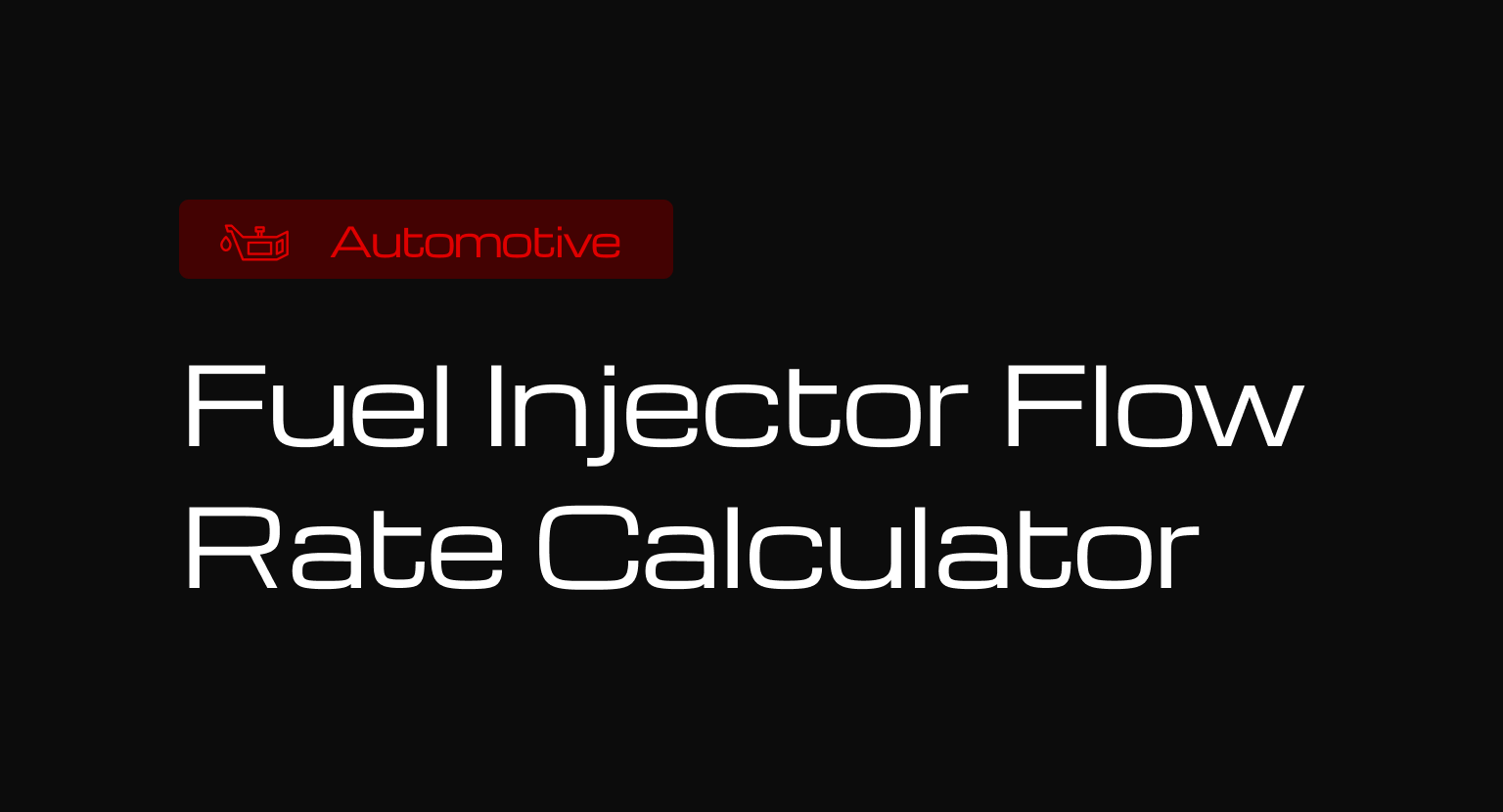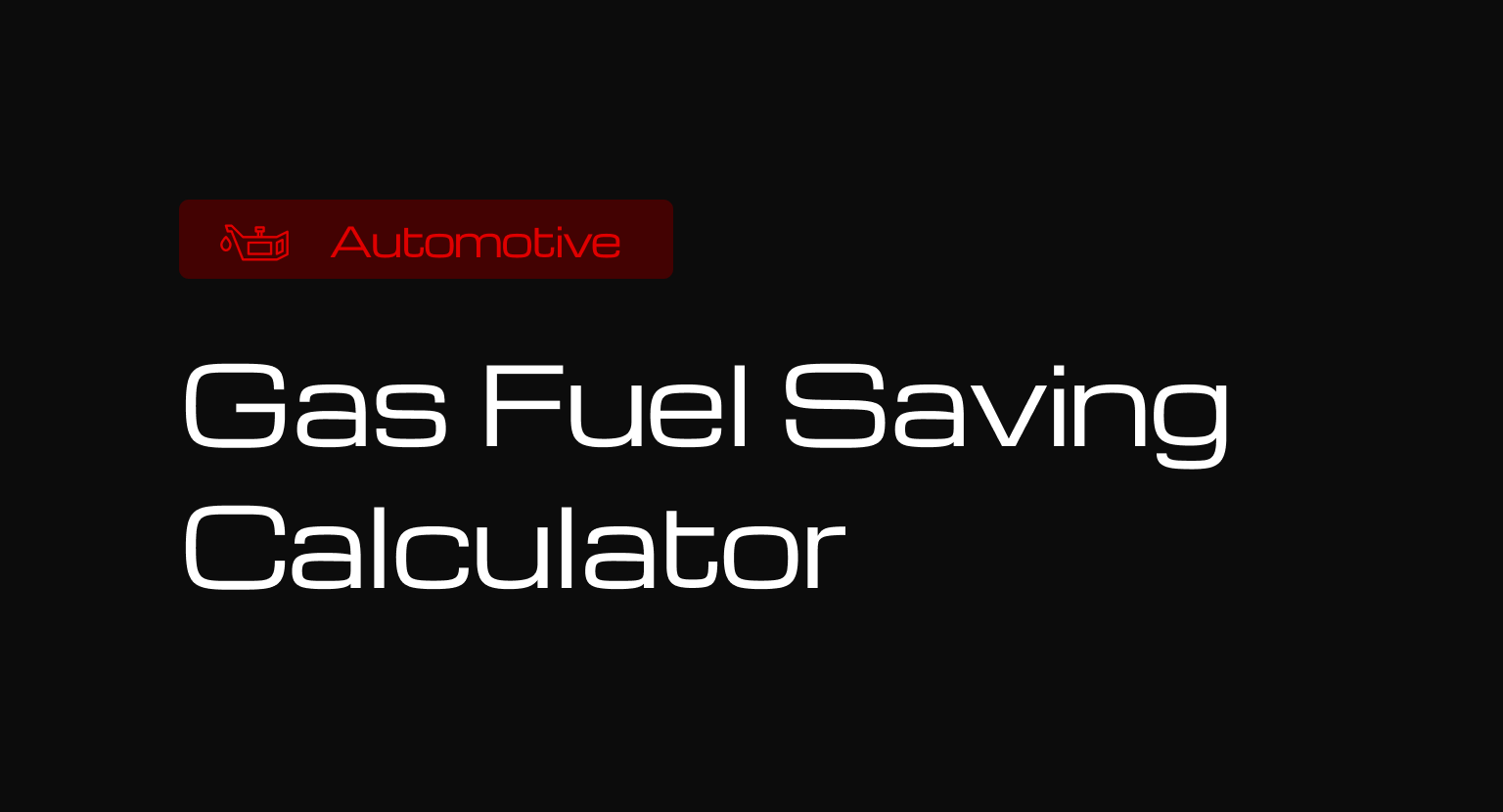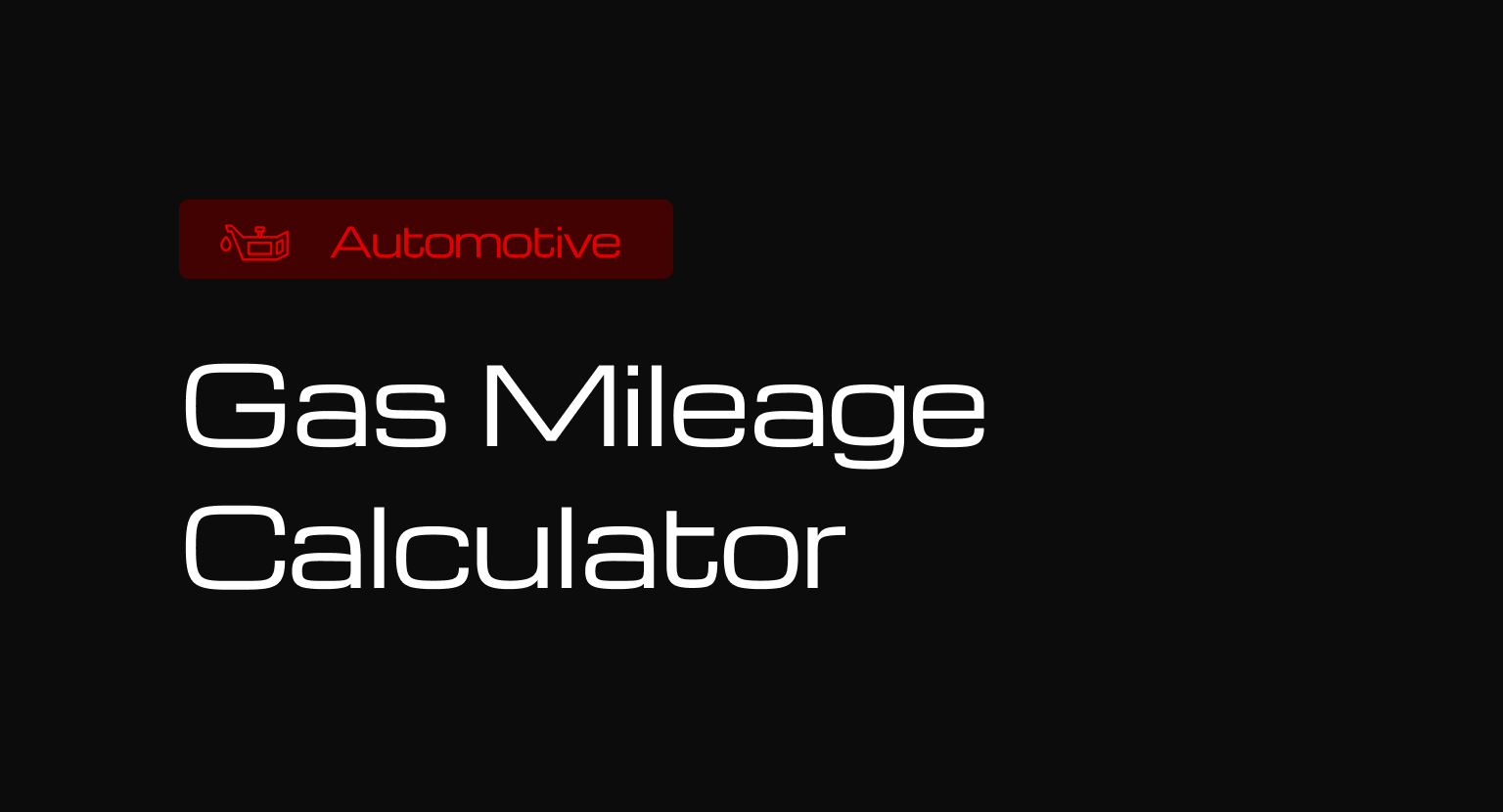Easily calculate your Fuel Cost! Enter your vehicle’s fuel efficiency (MPG or km/L), the cost of fuel per gallon or liter, and the total distance driven to estimate:
Fuel Cost Calculator
Quick Calculator Guide
Using our fuel cost calculator is straightforward:
- Enter Fuel Efficiency: Input your vehicle’s fuel efficiency and select the appropriate unit:
- Miles per gallon (MPG) for US measurements
- Kilometers per liter (km/L) for many Asian countries
- Liters per 100 kilometers (L/100km) for European measurements
- Input Fuel Cost: Enter the current fuel price in your area and select the unit:
- Dollars per gallon ($/gallon)
- Dollars per liter ($/liter)
- Specify Trip Distance: Enter your planned travel distance and choose:
- Miles for US measurements
- Kilometers (km) for metric measurements
- Get Results: Click “Calculate Fuel Cost” to see:
- Total fuel needed for the trip
- Total cost of fuel
- Detailed breakdown of calculations and conversions
The calculator automatically handles all unit conversions, so you don’t need to worry about the math!
The Basics of Fuel Efficiency
Fuel efficiency is one of the most important factors in determining your vehicle’s operating costs. In different parts of the world, it’s measured in different ways:
- Miles per gallon (MPG) in the United States
- Kilometers per liter (km/L) in many Asian countries
- Liters per 100 kilometers (L/100km) in Europe and Australia
Understanding these measurements is crucial for making informed decisions about your vehicle and travel plans. For example, a car that gets 30 MPG will use approximately 3.3 gallons of fuel to travel 100 miles, while a car that gets 40 MPG will use only 2.5 gallons for the same distance.
How Fuel Costs Impact Your Travel Budget
Understanding Fuel Price Variations
Fuel prices can vary significantly based on several factors:
- Geographic location
- Seasonal changes
- Global oil markets
- Local taxes and regulations
- Type of fuel (regular, premium, diesel)
For instance, if you’re planning a cross-country trip in the United States, you might encounter price differences of up to $1 per gallon between states. In urban areas, prices can vary by as much as 10-15% between neighboring stations.
Real-World Cost Examples
Let’s look at some practical examples:
A family sedan with 30 MPG efficiency, traveling 1,000 miles:
- At $3.00/gallon: Total cost = $100
- At $3.50/gallon: Total cost = $116.67
- At $4.00/gallon: Total cost = $133.33
This shows how even a $0.50 increase in fuel prices can add over $16 to your trip cost.
Tips for Maximizing Fuel Efficiency
Vehicle Maintenance
Regular maintenance can significantly impact your fuel efficiency:
- Keep tires properly inflated (can improve efficiency by up to 3%)
- Regular oil changes (can improve efficiency by 1-2%)
- Clean air filters (can improve efficiency by up to 10% in older vehicles)
- Proper wheel alignment (can improve efficiency by 1-2%)
Driving Habits
Your driving style directly affects fuel consumption:
- Maintain steady speeds (avoid rapid acceleration and braking)
- Use cruise control on highways
- Remove excess weight from your vehicle
- Reduce idle time
- Plan routes to avoid traffic and hills when possible
Understanding Fuel Economy Ratings
City vs. Highway Ratings
Most vehicles have different fuel efficiency ratings for city and highway driving:
- City driving typically results in 20-30% lower fuel efficiency
- Highway driving is more efficient due to steady speeds
- Combined ratings offer a realistic average for mixed driving
Factors Affecting Real-World Efficiency
Your actual fuel efficiency may differ from official ratings due to:
- Weather conditions
- Traffic patterns
- Road conditions
- Vehicle load
- Driving style
- Climate control usage
Frequently Asked Questions
Q. How accurate are fuel cost calculators?
Fuel cost calculators provide good estimates when given accurate inputs. However, real-world fuel consumption can vary based on driving conditions, weather, and vehicle maintenance.
Q. Why do fuel prices vary so much between locations?
Price variations are due to differences in state taxes, transportation costs, local competition, and regional supply and demand patterns.
Q. How can I find the most fuel-efficient route for my trip?
Use mapping applications that show elevation changes and traffic patterns. The shortest route isn’t always the most fuel-efficient, especially if it involves mountainous terrain or heavy traffic.
Q. Should I use premium fuel to improve efficiency?
Unless your vehicle specifically requires premium fuel, using higher-octane gas won’t improve fuel efficiency and will only increase your costs.
Q. How does weather affect fuel efficiency?
Cold weather can reduce fuel efficiency by 12-28% for short trips. Hot weather impacts are smaller but can still reduce efficiency by 1-4% due to increased AC usage.
Conclusion
Knowledge of fuel efficiency and managing fuel costs is essential for both daily commuting and long-distance travel. By considering factors like maintenance, driving habits, and route planning, you can significantly reduce your fuel expenses. Use our fuel cost calculator to plan your trips and budget effectively, and remember that small changes in driving habits and regular vehicle maintenance can lead to substantial savings over time.
Remember to regularly check your vehicle’s fuel efficiency and compare it against the manufacturer’s specifications. If you notice a significant decrease in efficiency, it might be time for a maintenance check. With proper planning and attention to these details, you can maximize your vehicle’s efficiency and minimize your fuel costs.


